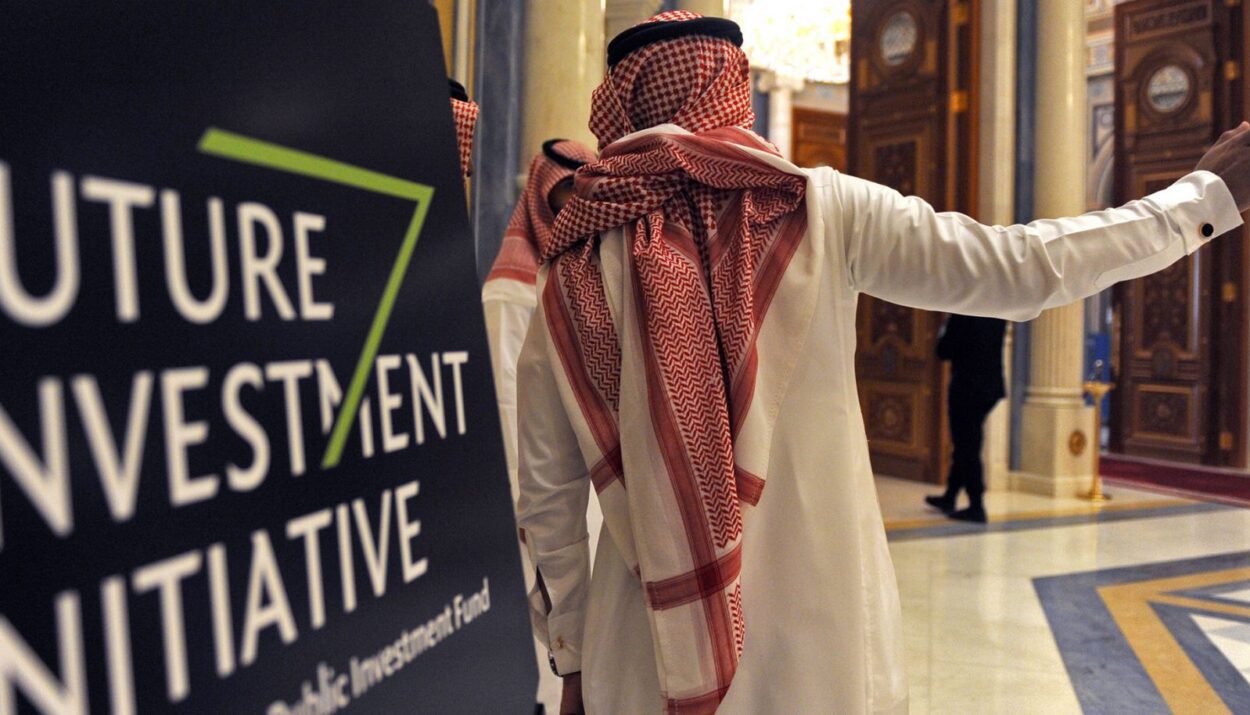- Saudi Arabia’s $925 billion sovereign wealth fund, the Public Investment Fund, saw its assets jump 29% in 2023 — and domestic investment was a major driver.
- “The days of viewing Saudi Arabia as a mere financial reservoir are ending,” one business executive told CNBC.
- Saudi Arabia’s recently updated Investment Law seeks to attract more foreign investment as well — and it’s set itself a lofty goal of attracting $100 billion in annual foreign direct investment by 2030.
Saudi Arabia is pushing forward with a strong emphasis on domestic investment, significantly raising the bar for foreign investors aiming to funnel capital elsewhere. The kingdom’s Public Investment Fund (PIF), a $925 billion sovereign wealth fund, reported a 29% increase in assets to 2.87 trillion Saudi riyals ($765.2 billion) in 2023, according to its annual report. A substantial portion of this growth was driven by increased investments in domestic infrastructure and real estate, highlighting a strategic shift in the kingdom’s investment priorities.
New Regulations Push for Local Investment
Saudi Arabia’s Vision 2030 plan, aimed at diversifying the economy away from its heavy reliance on oil, is driving a series of new regulations that encourage, and in some cases, mandate local investment. A key component of this strategy is the headquarters law, which came into effect on January 1, 2024. This law requires foreign companies operating in the Gulf region to establish their Middle Eastern headquarters in Riyadh if they wish to secure contracts with the Saudi government.
This move signals Saudi Arabia’s intent to not only attract more business to the kingdom but also to ensure that foreign entities contribute significantly to its economic transformation. The PIF’s report marks a clear shift from externally driven investments to a concentrated focus on domestic opportunities, signalling the end of the era when Saudi Arabia was seen primarily as a financial reservoir for global ventures.
Challenges and Scrutiny for Saudi Arabia Foreign Investment
Alongside these regulatory changes, Saudi Arabia has introduced an updated Investment Law designed to attract more foreign direct investment (FDI), with a lofty goal of reaching $100 billion annually by 2030. Currently, FDI has averaged around $12 billion per year since the Vision 2030 plan was announced in 2017. This ambitious target has sparked scepticism among some experts in the region, who question whether such a significant increase in foreign investment is realistic under the current conditions.
Critics point out that the kingdom’s push for major project spending will necessitate higher breakeven oil prices, adding pressure on the Saudi budget. Tarik Solomon, chairman emeritus at the American Chamber of Commerce in Saudi Arabia, noted that success with the PIF now requires partnerships grounded in mutual trust and long-term vision, where stakeholders are expected to contribute meaningfully with capital, rather than merely seeking profits.
Moreover, local investment managers have observed a shift in the region’s approach to foreign investment, which has become far more selective and sophisticated. Gone are the days when overseas firms could easily tap into Saudi capital without rigorous due diligence. The kingdom is making it clear that the focus is now on transforming its own economy, and foreign investors must align with this vision if they wish to participate.
The Path Forward: Balancing Innovation and Regulation
Despite the challenges, some experts believe that the new regulations could improve local business conditions and attract more foreign investment in the long run. James Swanston, Middle East and North Africa economist at Capital Economics highlighted that the updated Investment Law could help to streamline processes and reduce the bureaucratic hurdles that have previously deterred greater foreign involvement in the Saudi economy.
However, this also means that the Public Investment Fund will continue to bear a significant burden in driving the kingdom’s economic transformation, especially if foreign investment levels do not meet expectations. As Saudi Arabia continues to refine its regulatory framework, the emphasis remains on creating a business environment that balances innovation with the necessary oversight to ensure sustainable growth.
In summary, while Saudi Arabia’s intensified focus on domestic investment presents new opportunities for the kingdom’s growth, it also raises the stakes for foreign investors. Those looking to enter the Saudi market must be prepared to navigate a more complex and demanding regulatory landscape, where success is increasingly tied to contributing to the kingdom’s long-term economic goals.










